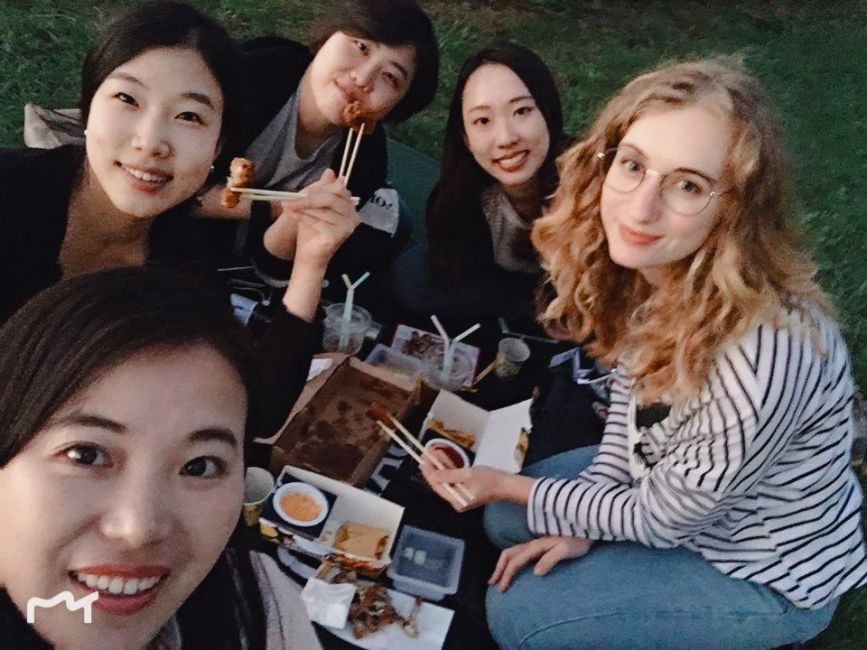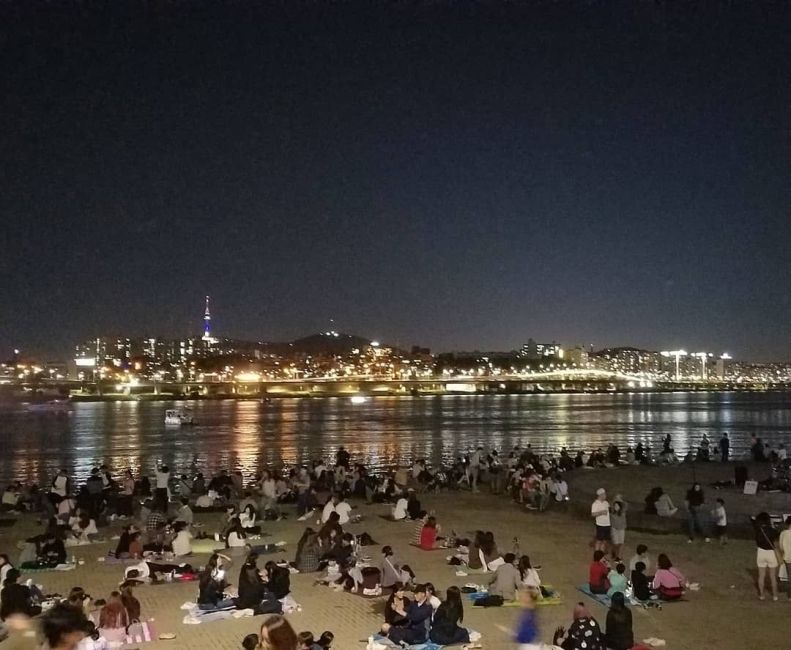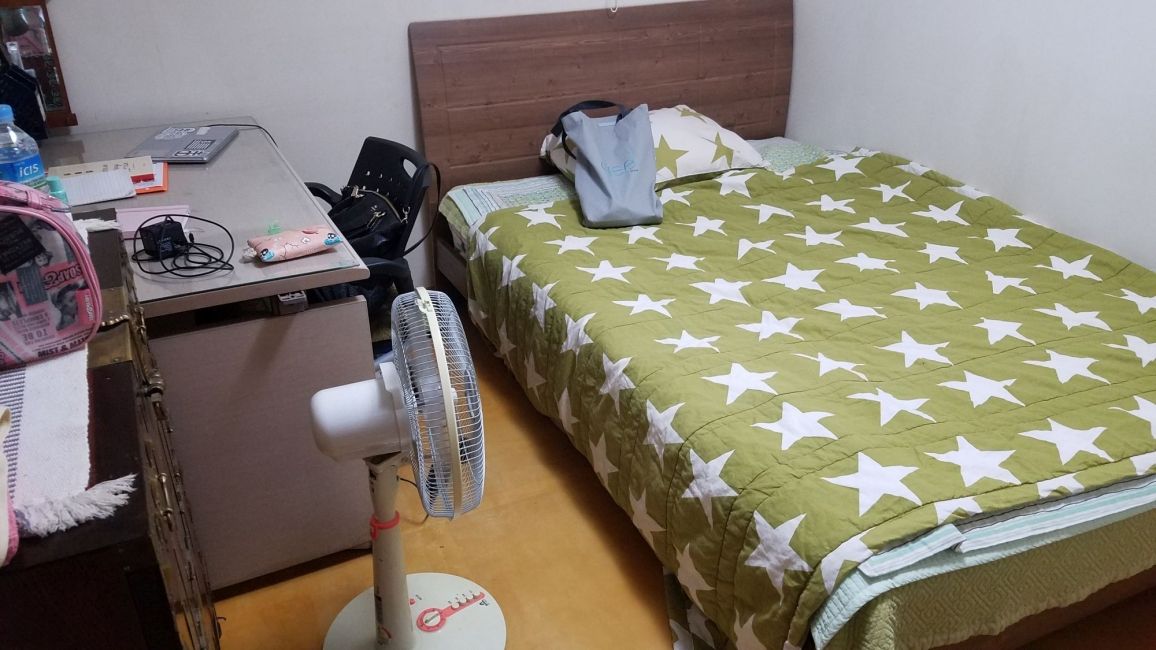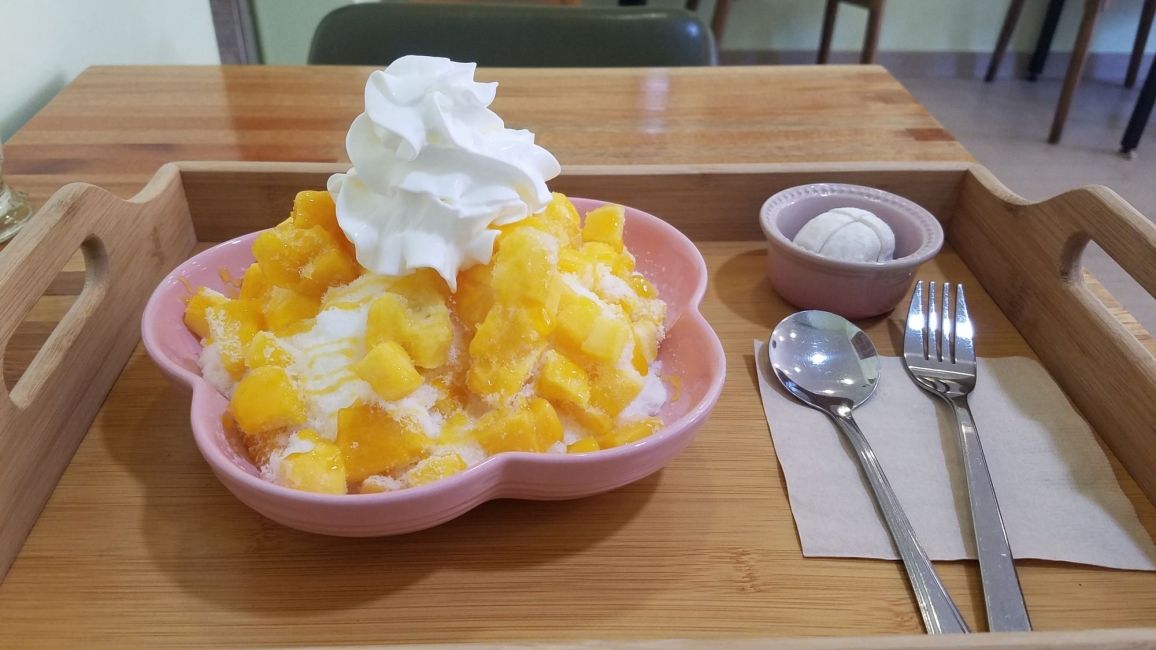Is living with a host family right for you?
Deciding whether to live with a host family is a hard choice for many students who are studying abroad. Last semester when I was preparing to study abroad, I had a hard time choosing what would be the best fit for me. I went back and forth for months considering the pros and cons of studying abroad. I asked others who were studying abroad what their opinion was along with asking my study abroad advisor which choice would be the best fit for me. I was the first student from my school to use CIEE to study abroad in South Korea, so I really had no idea what to expect. Ultimately, I decided to live with a host family here in Seoul. My host family consists of an elderly couple. I wanted to write a post that talked about my personal experience in a way that would help others decide whether living with a host family was the right fit for them. Below is a list of what it means to live with a host family based on my experience.
Living with a host family means practicing the host country's language.
If you are a person that is studying abroad with the goal of improving your language skills, then you should really consider living with a host family. One of my top priorities of studying abroad is to become proficient in Korean. I have been living with my host family for about a month and a half and I can already see an improvement in my speaking and listening abilities. In my experience, living with a host family has been more helpful than any other measure I've taken to learn the language, including a Korean intensive language course. There are other ways students can practice Korean on campus. For example, students can join a language exchange program which meets maybe once or twice a week to help each other improve. Personally, I decided not to join this language exchange because I didn't have enough time due to the other clubs I joined. Students can also immerse themselves in student organizations where they will be able to meet a lot of local students. I joined two different student organizations on campus and it's great in terms of meeting new people and making friends! However, I've found that a lot of Korean students really enjoy practicing English with foreign students. This is not necessarily a negative aspect, it just means that they are trying to make you feel comfortable and understand the pressures of speaking a foreign language. I still try to speak Korean to some of the students I've met on campus, but others are very set on practicing their English. That being said, there is no guarantee of speaking Korean on campus outside of Korean class. On the other hand, because I have a host family, I need to communicate in Korean every day. I have met other students that live in the dorms who don't get the chance to speak Korean outside of Korean language class. However, there are other students who have joined clubs or met friends in classes and speak Korean with them daily. Based on my personal experience, the only guaranteed daily chance I have to speak Korean outside of the classroom is with my host family. Homestay gave me more confidence in speaking Korean with others. I never feel scared to communicate with others or to speak in Korean class.
Living with a host family means commuting.
CIEE Seoul gives you two options while applying for homestay. You can either mark that you are okay with an hour or more commute or you can say you are not okay with a commute time of over an hour. Since Seoul is such a big city, it is normal for college students to commute for over an hour to get to classes. I chose to be okay with an hour or more commute. I live about an hour away from campus depending on the traffic. Other homestay students live forty minutes or even twenty minutes away from campus. I usually leave for class about an hour and a half before the class begins but I have later courses, so it isn't that bad. Since most of my classes are in the afternoon, I go early to grab lunch with other friends and then go to classes. Commuting to campus is not always fun but I don't mind it. I think of it as a way to see different areas of the city as I take the bus to school. Every day, I cross over the Han River, see the N Seoul Tower, see Seoul Station, and other glamorous sites of Seoul. I also get a chance to be among the everyday people outside of college kids in the city. If you are a person who doesn't like to get up early or is always running late, maybe you should reconsider living with a host family. However, it's really helpful in understanding the bus and subway systems.
Living with a host family gives you a chance to see a different side of Seoul.
Living with a host family gives you a chance to see a different part of Seoul that other students will never experience. I live in a very residential area in Gwanakgu and am most likely the only foreigner on my street. Being the only foreigner may result in a lot of people giving you interesting looks, but it also means a lot of people will go out of their way to be kind to you. I went to a cafe near my house and the woman was very excited that I was there. She practiced her English as I spoke back in Korean and she gave me a free pastry. For the first couple of weeks, I attended my host family's church with them and met a lot of college kids through that. This later led to going to dinner with them multiple times, going to coffee shops to hang out, and even having a picnic near Han River. If I wouldn't have lived with my host family, I would have never met these new friends. It gave me a chance to meet people outside of the Yonsei community and better understand family life in Seoul.
Living with a host family means adapting.
Just like living with a roommate, living with a host family means you both need to adjust to each other. I am very lucky that my host family is so kindhearted. There have been a couple of small problems, like getting the Wi-Fi to work on my computer, but they were easy fixes. If you want to live with a host family, it is important to communicate with each other. If there are problems, I've learned the best thing to do is to talk about them with each other. Sometimes I have a difficult time explaining certain situations to my host family, partly because of the language barrier and partly because of the age gap, but I was able to solve these problems by communicating with them or asking a Korean church friend to help me talk with them about the problem. It is also important to understand that your culture is different from their's. There are bound to be cultural differences that both of you will need to adapt to and work through. My advice is to be open to the new culture and if you don't understand something, find a polite way to ask about it. Maybe if you don't understand why something is the way it is, you can ask your host family why. If you are confused about what you are eating for example, ask how your host family how it's made or if it's a unique food to the culture. Just keep in mind that your host family means well and wants you to enjoy your time in their home. However, this also means you should respect their house rules and be understanding of differences in their lifestyle.
Living with a host family means better understanding the country's culture.
Living at a homestay means you are very immersed in their culture. You have the opportunity to learn so much about everyday life and cultural norms! While living with my host family, I've learned so much about different parts of their culture. One of my favorite parts is learning about Korean cuisine and its connection to Korean culture. My host mom cooks me breakfast and dinner each day. I have tried so many different types of food and my host mom even explains to me how she makes each dish. She makes her own kimchi and other side dishes, which are fantastic! Where else would I be able to taste homemade kimchi?? My host dad also likes to go on walks on a track near our house and sometimes I go with him. When we walk, he loves to talk about his family and it gives me a better chance to understand what it's like to raise a family in Seoul. During holidays, I get to try to traditional foods of the holiday and learn why Koreans celebrate each holiday.
Overall, living with a host family is a very personal choice. It's important to keep in mind that every experience is different, and every host family is different. I believe it's best to go into a homestay experience with no expectations on what it will be like. Be ready to adapt and be flexible. It may be hard at times, but it is very rewarding and is a wonderful experience. Whatever decision you make, have a great semester/year abroad and make lots of memories!
Related Posts
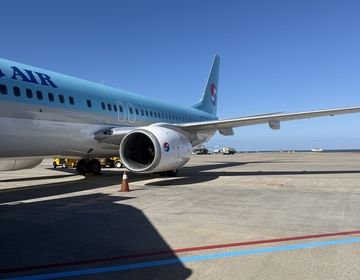
Soul Searching in Seoul: Everything I Learned and What I Wish I Knew
Before I start crafting my “study abroad changed me” answers for friends and family, here are the practical things I wish I’d known. The things that would’ve saved me time... keep reading

A Seoul Escape to Bukhansan
Get out of the hustle and bustle of Seoul and head to the peak of Bukhansan!
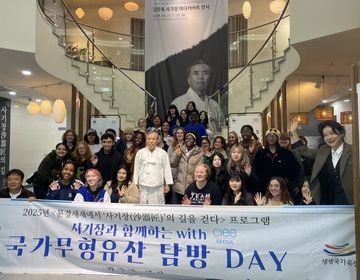
My Time in South Korea Attending Yonsei University: A Life-Changing Chapter
By: Zahrraa Al-Salman Studying abroad had always been a dream of mine—an opportunity to step outside of my comfort zone, immerse myself in a new culture, and deepen my understanding... keep reading
